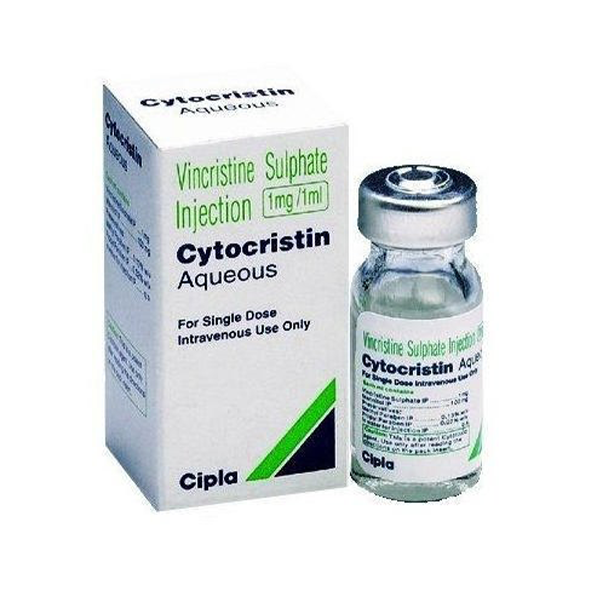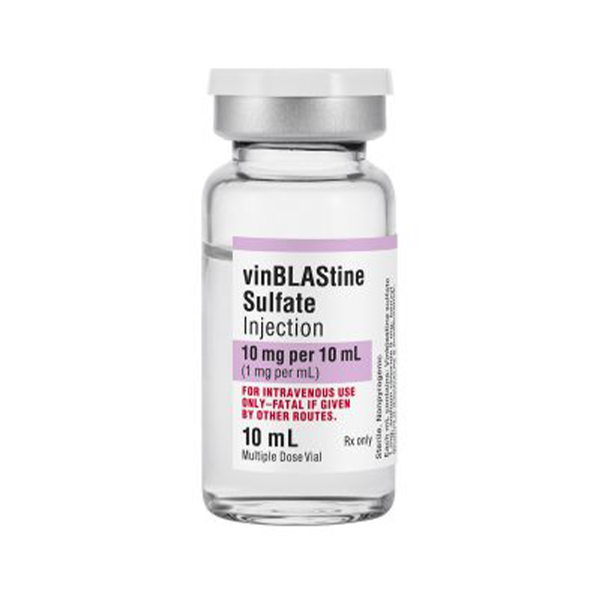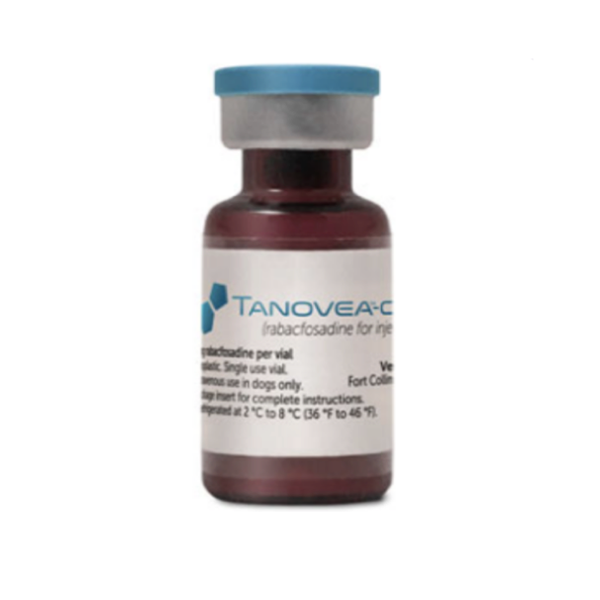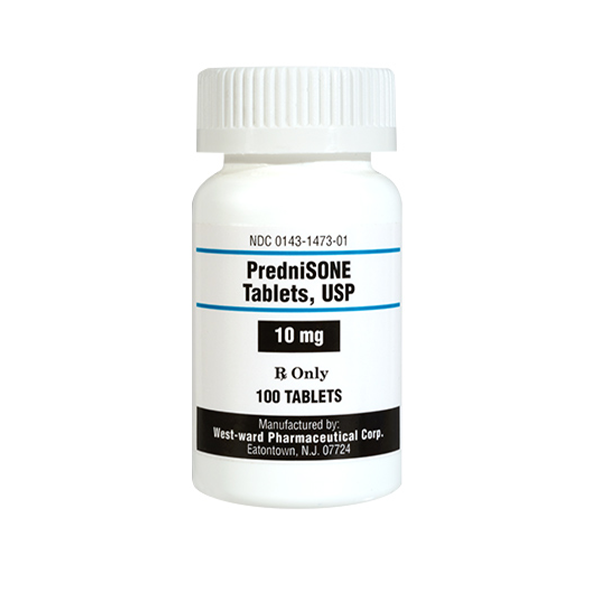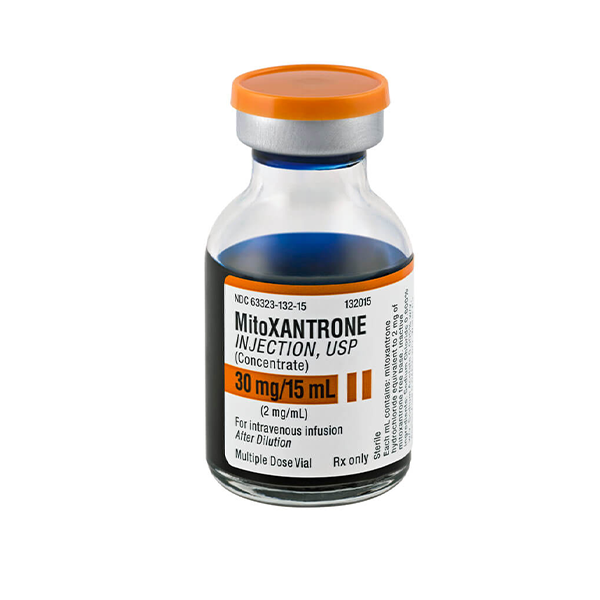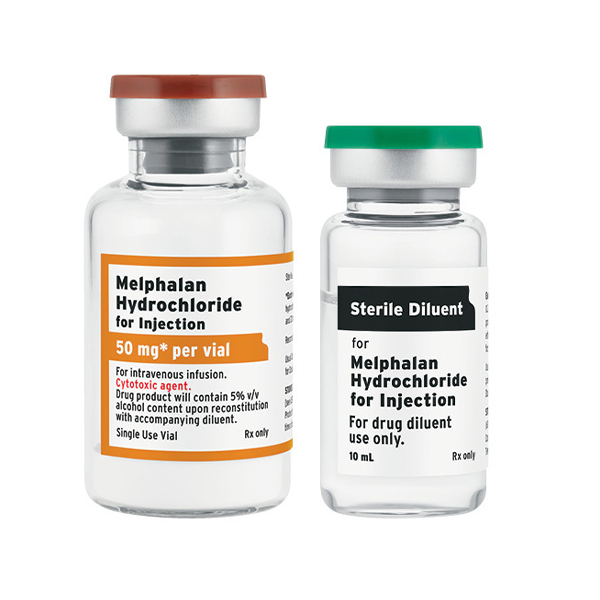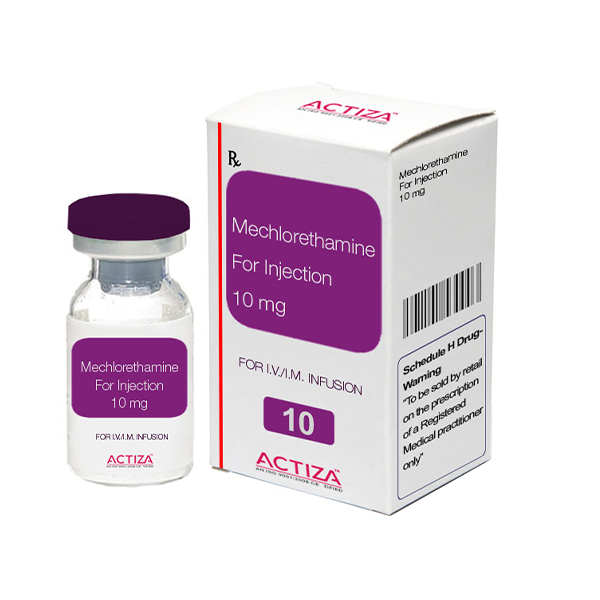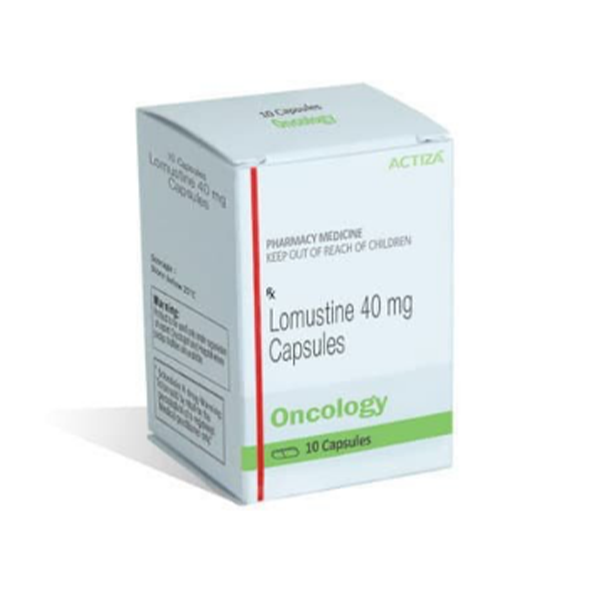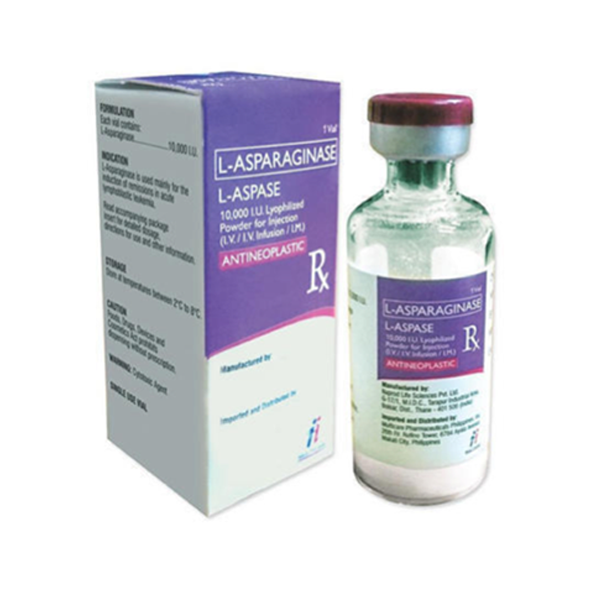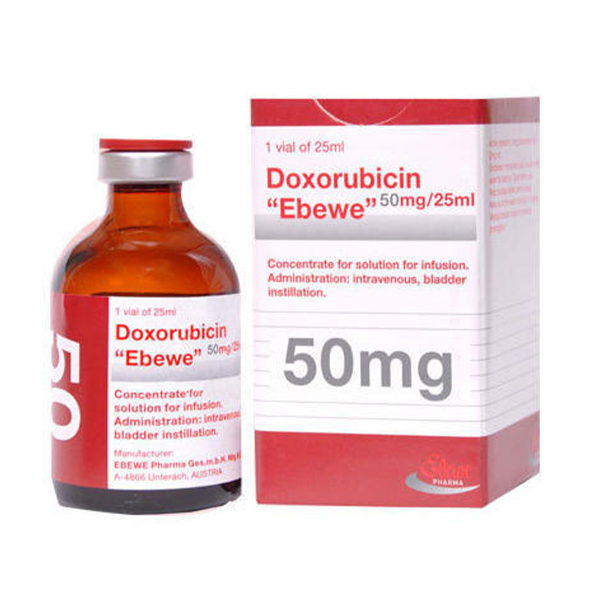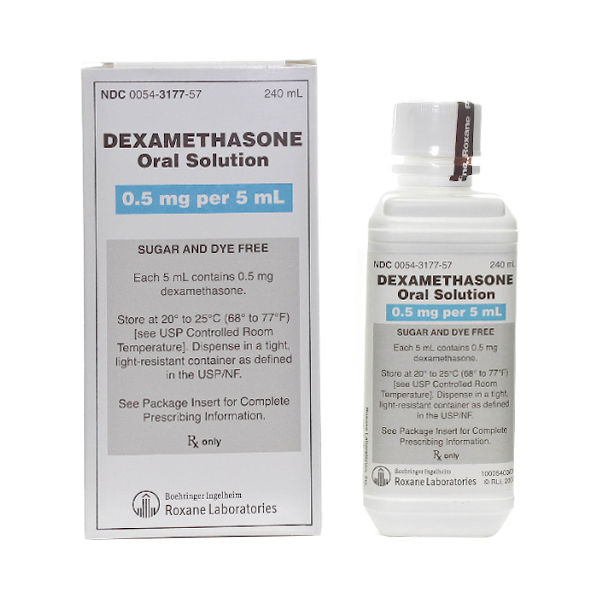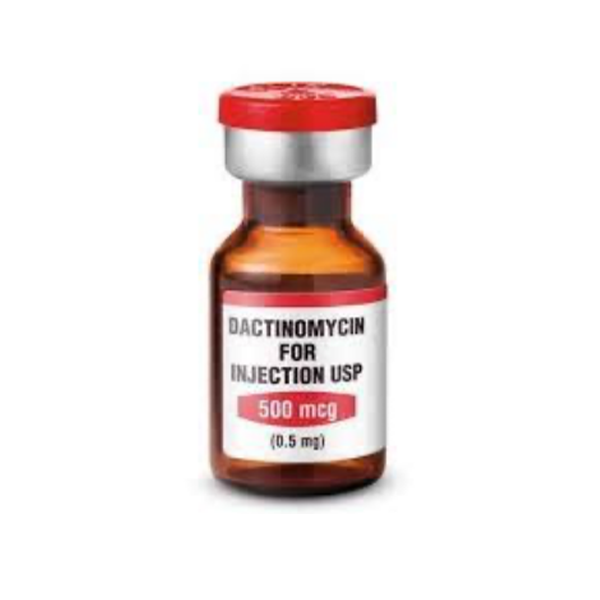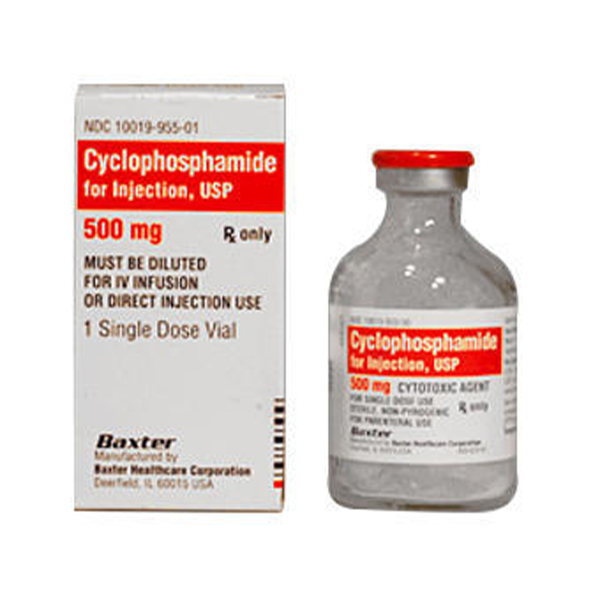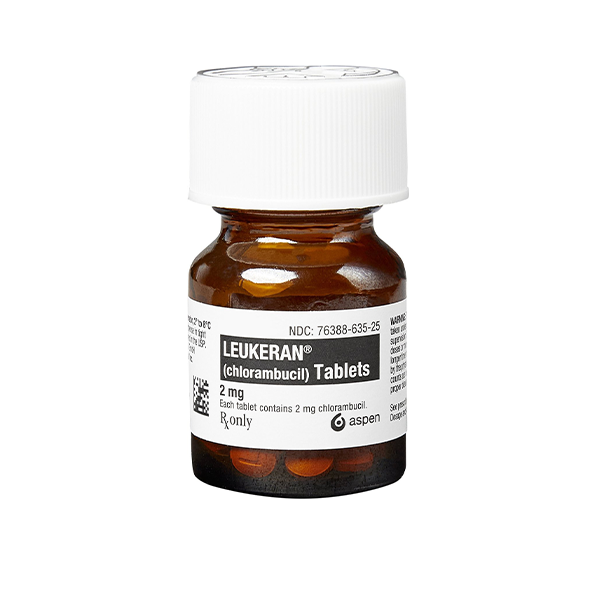Mechlorethamine
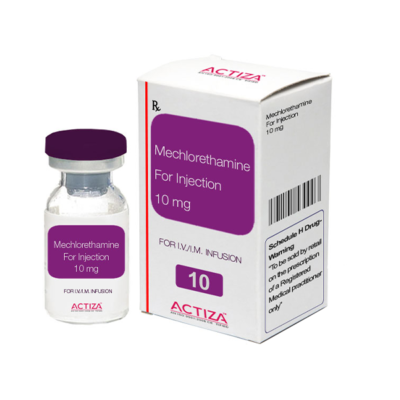
BRAND
Mustargen®
DRUG TYPE
Anti-cancer chemotherapy drug
CONDITIONS TREATED
Various types of cancer such as non-Hodgkin’s lymphoma and leukemia
ADMINISTRATION
an injection into the vein (intravenous, IV)
CYCLES OF TREATMENT
Usually given once a week
LENGTH OF TREATMENT
Depends on type of cancer or condition as well as dog’s health and response to the drug
What is mechlorethamine?
Mechlorethamine is an alkylating agent which is cytotoxic and prescribed as a chemotherapeutic drug known as Mustargen®. This chemical acts as an anti-cancer drug by binding to DNA and preventing it from duplicating prior to cell division. In contrast to normal cells, cancer cells are usually dividing faster and with less DNA error-correction during replication. This makes their DNA more sensitive to inhibition and cell death.1 Normal cells undergo cell division as part of the cell cycle. Basically, the cell goes from the resting phase, through active growing phases, and then divides (mitosis). Chemotherapeutic drugs that affect cells only when they are dividing are called cell-cycle specific; however, alkylating agents such as mechlorethamine are most effective during the resting phase and are cell cycle non-specific.2
This compound is a derivative of nitrogen gas, also called nitrogen mustard, which was used for chemical warfare during the World War I. Exposure to this chemical was found to have an effect on bone marrow and white blood cells which initiated an investigation into its use as a treatment for lymphoma.1
Mechlorethamine use
It is usually used as a part of the combination treatment for canine lymphoma which is similar to non-Hodgkin’s lymphoma in humans.3 This medication combats cancers that originate in white blood cells. It is also used to treat certain types of leukemia which are also cancers of the white blood cells. Sometimes it is administered as palliative chemotherapy to reduce malignant effusion which results in fluid accumulation around the heart or lungs. Lately, it has found use as a lotion for treating skin lesions of cutaneous T-cell lymphoma, and mycosis fungoides, which is a cancer of the immune system.
Mechlorethamine administration
Mechlorethamine is prepared from a powder and mixed with a compounded liquid.2 It is delivered intravenously (IV) by a well-trained veterinary health provider. For certain treatments, this drug can be injected into the abdominal cavity, chest cavity, or lining of the heart.3 Treatment duration is dependent on the type of cancer or condition, how well your pet responds, and on the interaction with other treatments. Depending on your pet’s response, your veterinarian will adjust the dose of mechlorethamine to reduce the potential for adverse effects. The amount of mechlorethamine your pet receives and how often it is administered depends on many factors, including height and weight, general health, and other health problems. Mechlorethamine affects cells when they are at rest; therefore, it is classified as cell-cycle non-specific and is not typically given in cycles. Your veterinarian will determine your dog’s dose and delivery schedule. Ask your doctor or pharmacist for the manufacturer’s information so that you can more effectively monitor your animal.
Before using mechlorethamine
- If your pet has allergies to the drug, ingredients mixed with it, or reacts to other medications, vitamins or supplements, be sure to inform your veterinarian.3
- Ask your pharmacist for a list of other ingredients included in this medication or any other medication that your pet is currently taking. This is important since the product may contain inactive ingredients which can cause allergic reactions or other problems.
- Let your vet know if your dog is currently experiencing fever or has recently had an infection. This drug lowers the effectiveness of your pet’s immune system.
- Be sure to mention if your dog is taking other alkylating agents like mustard gas derivatives, ethylenmines, alkylsulfonates, hydrazines, triazines, nitrosureas, and metal salts.
Before and during treatment, your veterinarian will order blood tests to check blood cell counts, metabolites and enzyme levels. This information is used to evaluate immune system function as well as the drug’s effect on kidney and liver. It is important to let your veterinarian know if your pet has had a history of the following:2
- Received radiation therapy or other chemotherapy within the last 4 weeks
- Experienced seizures or a head injury
- Is pregnant or breast-feeding
- Has recently been vaccinated or is scheduled for a vaccination
While using mechlorethamine
Mechlorethamine must be administered with extreme care, not only for your dog’s health, but for the owner’s safety. Take the following precautions when handling the medication:2
- Mechlorethamine is a vesicant that can cause extensive tissue damage and blistering if it escapes from vein(s). Find a veterinary health practitioner who has experience with oncology since the intravenous delivery requires special training.
- After the treatment, examine your dog for signs of redness, pain or swelling at the injection site. If these symptoms occur, alert your veterinarian immediately.
- Be sure to wear gloves and dispose of them after each use.
- Do not allow this medication to come into contact with your skin, eyes, or mouth.
- After delivering the drug and for at least 48 h afterwards, handle your pet’s bodily fluids carefully and wear gloves.
- Seal all bodily wastes and used gloves in a plastic bag before placing them in the trash.
- Do not give aspirin, or products containing aspirin, to your pet unless your vet approves.
- Do not allow your pet to lick your skin. If this occurs, be sure to wash the area with soap and water.
- If you are pregnant or may become pregnant, please do not handle this medication. It passes readily into the bloodstream and has the potential to adversely affect fetus. In addition, this drug passes into breast milk and may harm a nursing infant.
SIDE EFFECTS & OVERDOSE
Mechlorethamine is usually well tolerated by dogs and side effects almost always disappear after treatment is complete. It is still important to observe your pet for any adverse effects. Side effects of the drug most often develop in the gastrointestinal tract with more serious side effects arising due to bone marrow suppression. Mechlorethamine may reduce blood cell production in bone marrow which reduces your pet’s capacity to fight infection. It may also interfere with the blood clotting mechanism.
Possible side effects include the following:1
- Nausea or vomiting
- Low white blood cell count (leukopenia or neutropenia), which may lead to infection
- Low red blood cell count (anemia) that may cause weakness, shortness of breath, labored breathing
- Low platelet count (thrombocytopenia); it can lead to excessive bruising or bleeding such as nose bleeds, bleeding gums, or bloody urine or stool
- Fatigue
- Hair loss
- Loss of appetite
The drug has also been associated with secondary cancers that may appear years later; however, these are usually associated with repeated treatments or high doses.1
Contact your veterinarian immediately if your pet experiences any of the following symptoms that are likely due to allergic reaction:3
- Shortness of breath or difficulty breathing
- Chest pain
- Rash, hives, flushing or itching skin
- Drop in blood pressure
Symptoms of overdose include the following:3
- Fever, chills, sore throat, ongoing cough and congestion, or other signs of an infection
- Unusual bleeding or bruising
- Bloody or black, tarry stools
- Bloody vomit
- Vomited material that looks like coffee grounds
- Irregular heartbeat
Drug interactions may change the effectiveness of mechlorethamine or increase your dog’s risk for serious side effects. This document does not contain all possible drug interactions. Keep a list of all the products you give your pet including prescription/nonprescription drugs, supplements, and herbal products. Share it with your vet and pharmacist.
Some products that may interact with this drug include:
- Nalidixic acid
- Azathioprine
- Cyclophosphamide
- Amphotericin B
- Chloramphenicol
Serious interactions may occur when taking the drug with the following:8
- Immunosuppressive or immunomodulatory drugs
- Selected multiple sclerosis agents
- Selected myelosuppressive agents such as Clozapine or Deferiprone
Severe interactions can arise when combined with the following drugs:8
- Alkylating agents such as nalidixic acid
- Selected immunosuppressants such as talimogene laherparepvec
- Live vaccines
- Immunosuppressive drugs or immunomodulators such as Efalizumab or Natalizumab
Do not start, stop, or change the dosage of any medicines without your vet’s approval.
- Ask your vet if it would be appropriate to premedicate your pet with antihistamine prior to chemotherapy.
- Monitor your dog for a minimum of 1 hour following the treatment.
- If redness or swelling is noted at the IV infusion site, apply an ice compress and notify your veterinarian immediately.
- Try and have your dog drink at least two to three quarts of fluid every 24 hours, unless you are instructed otherwise.
- Your dog may be at risk of infection so measure your pet’s temperature, and report fever or any other signs of infection to your veterinarian immediately.
- Call the hospital if it is above 103oF or below 99ºF
- Wash their feet often, especially if they are prone to licking.
- To help prevent mouth sores, try to rinse your dog’s mouth with 1/2 to 1 teaspoon of baking soda or 1/2 to 1 teaspoon of salt mixed with 8 ounces of water three times a day.
- To reduce nausea, ask your veterinarian about anti-nausea medications.
- Try and feed your dog small, frequent meals rather than less frequent large meals.
- Avoid dog food with high fat content and allow your dog to have plenty of rest.
- If your pet experiences other symptoms or side effects, be sure to discuss them with your veterinarian. They can prescribe medications and/or offer other suggestions that are effective in managing such problems.


